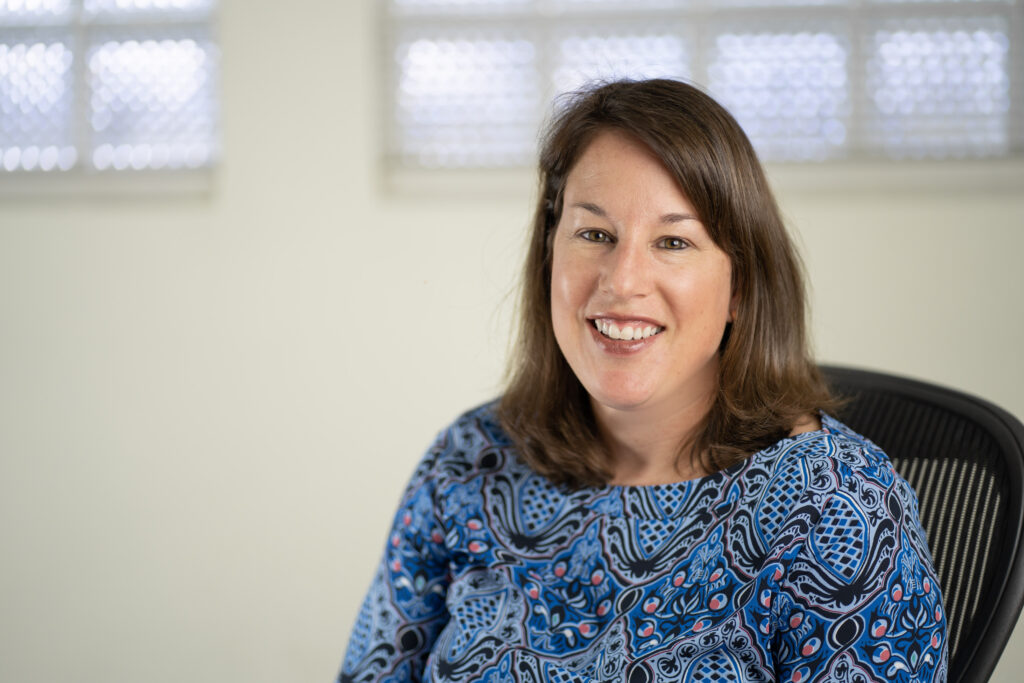During this pandemic, many people have lost their jobs. No doubt about that. And, it’s been horrible. But, at the same time, many people are accepting and starting new jobs–including many in the PR, comms and social media world. And, over the last few months, I’m starting to see more of these folks in my feeds.
What’s more, what an interesting and unique time to be starting a new job. Challenges abound: How do you get to know your new team over Zoom? How do you assimilate into a culture that’s now almost entirely virtual? What does onboarding look like?
I looked to ask the handful of people I know that started new jobs recently about their experience. Both–what was it like looking for a new job during a pandemic? And, what was it like accepting and starting a new job during a pandemic. The answers might surprise–and inspire you:
Katie Fitzpatrick, director of content and PR, DKY

Did you feel like you had more or less communication with your new employer during the search process? Were recruiters more responsive?
Once I submitted my resume and started the interview process with DKY, the hiring team did a great job communicating expectations, next steps and keeping me informed of their anticipated timeline. It was one of the smoothest application processes that I’ve experienced in my career.
If you interviewed with multiple people via video, did you feel that was easier or tougher than doing it in person? Why?
All of my interviews with DKY were conducted via video. I didn’t meet anyone in person until after I was hired, which was pretty wild. Coming into the process, I was comfortable with video meetings from my previous employer, so the format wasn’t an issue for me. However, there is pressure to come across well on camera while talking about your skill set and experience, especially with the added distraction of watching yourself do it (at least on some platforms) and the potential for kid/pet) noise or chaos in the background. And for me, I’m always worried about a tech issue like my sound not working properly or the screen freezing mid-sentence, but people are pretty forgiving these days.
For my DKY interview experience, I had two back-to-back group interviews with 3-4 staff members per meeting. It was easier from a time and efficiency standpoint, but harder to make a personal connection through the screen. Overall, I felt good about the interviews and made a special effort to remember at least one key topic, question or comment from each staff member who I spoke with, so I could reflect on it in more detail in my thank you notes.
What was your onboarding process like?
My onboarding process was amazing since I had the benefit of a three-month onboarding/transition period with Holly Donato, former VP of Content and PR at DKY, as she prepared for her recent retirement. During my first week at DKY, Holly and I met in person to go through the groundwork of the role and then we connected through video chats the rest of the summer.
What did your new employer do really well during onboarding?
The most helpful aspects of my onboarding period were the detailed client backgrounders and weekly schedules of SME meetings, reading assignments and projects that Holly prepared for me. She was committed to making this a successful transition and did everything possible to help prepare me. Also Holly and other team members were and continue to be readily available to answer my questions and offer guidance.
How have you managed getting to know a new team, boss and company while working completely remotely? What has worked to help get to know people better?
I’ve been working a hybrid in the office/remote schedule. The in-person face time has been valuable to collaborate in real time and to get to know some of my coworkers better. However, DKY has set up our team to not miss a beat from home. At our fingertips is a platform that connects us through team messaging, video calls and other features that we use on a daily basis. We also have easy access to a shared server, Google drives and other document-sharing tools.
Other ways the team stays connected is through virtual staff meetings to share agency updates, showcase notable client programs and celebrate exciting personnel news, which there has been a lot of at DKY these days — retirements, pregnancies, weddings, new hires and more!
Have you been able to get a strong sense of the company culture while working remotely? How has that played out?
Yes, I quickly discovered how wonderfully collaborative, smart and fun the DKY team is and the strong sense of company culture that has been established by the partners. Like every company, DKY team members have had to adjust to working in new ways and overcome hurdles along the way. The leaders of the agency live out the importance of values, honesty, kindness and generosity in the workplace. Plus, many of the employees have long tenures (10-20 years), which speaks volumes. No one sticks around that long if they aren’t treated well.
What advice would you give others looking to make a job transition during COVID?
Give it a shot. Employers are hiring and looking for strong candidates. Update your resume and organize your best work samples, so you’re ready to go when an interview opportunity knocks on your door. Most important, start networking and reach out to your connections to set up informational meetings, ask questions and gain some new leads. That’s how I landed my job at DKY. I was fortunate and appreciative that a former colleague took the time to refer me to Holly. She really helped put me in a good position. It all comes back to the power of professional networks. The Minnesota communications community is a vibrant group of professionals who are looking out for each other during this very trying time.
Bill Van Cleaf, marketing communications consultant, Cargill Animal Nutrition

What were the pros and cons of the Zoom interview process?
I really enjoy video interviews and think I do well on them. It allows you to get the nonverbal feedback you see when you’re in the room with someone. The silences aren’t so awkward when you see someone nodding their head in agreement. It also relieves the stress of driving, parking, waiting nervously in a lobby, small talk in those transition times. Interviewing with multiple people is actually much easier on video. To show up best on video, I keep my focus and eye contact on my webcam. I don’t get distracted by what the other people are doing until I’m done talking.
Did you feel like you had more or less communication with your new employer during the search process? Were recruiters more responsive?
I worked through a consulting agency, Antenna, on my search, and they were great about communicating with me throughout the process — from status to follow and the final offer. They also involved me in some team development before I even started, which really made me feel they were committed to me as part of the team. Outside this experience, it feels like other recruiters have been incredibly unresponsive, far more than “normal times.” It could be the added stress and uncertainty candidates are facing, which makes those small updates that much more important.
What was your onboarding process like?
Cargill did a great job putting together an onboarding outline of key meetings and tasks for me first week. At the same time, they are a culture of ownership and responsibility to their employees. I was given the lay of the land, But I was also accountable for my schedule and meet and greets. Cargill also has good tech for collaboration. I’ve able to pop into IM for this quick questions. Upside: it doesn’t feel like an interruption, compared to coming into someone’s office.
What did your new employer do really well during onboarding?
One thing I’ve been grateful for is a team that clearly values each of us as individuals, how we’re doing, and makes time for us to get together, chat, celebrate and focus on things other than work. Our leader has been very clear that whatever the business needs can wait for an hour or two.
How have you managed getting to know a new team, boss and company while working completely remotely? What has worked to help get to know people better?
Cargill is still working remotely and has been very bearish on opening the office back up. But that aside, I’m a team that is geographically dispersed anyway, working with people from Toronto to California, so my job was always going to be done virtually.
Have you been able to get a strong sense of the company culture while working remotely? How has that played out?
When it comes to learning the culture, I think a lot of that comes through in meetings and conversations. What behaviors are we celebrating and rewarding, how are we working to include people in the conversation. Last week, I was gently prodded to not be so polite and jump in and speak up, poking fun at my Minnesota nice.
What advice would you give others looking to make a job transition during COVID?
For job seekers, it will take longer. Recruiters and hiring managers are stressed and stretched, too. Don’t be afraid to speak up and keep your name out there. For recruiters, take a walk in your candidates’ shoes. More than normal times, there is a lot of anxiety about For new hires working remotely, it’s easy to feel forgotten when your calendar isn’t full and you’re not at full capacity. The team didn’t want to overload me with meetings right away, I instead asked them to please include me, because it was the best way to learn how the team works together and ended up setting me up for success later. Use the tools you have for collaboration to ask questions, share ideas.
Emily Negrin, senior director-marketing & communications, Inari

What were the pros and cons of the Zoom interview process?
Interviewing with an out-of-state company can normally get complicated as it often requires travel – which can be tricky to manage when you are employed elsewhere. Doing everything via zoom made it easier to manage schedules. Even with local interviews, you had to allow time travel time – so interviewing always took chunks of time out of your day. With Zoom-style calls, I could easily squeeze in interviews between my other meetings. By this point, I’ve gotten used to meeting people via video-calls – but I could see where that could have been a bit more awkward back in March. There is also the fact that my 4.5 year old ran into the room in the middle of my first interview … he never got on camera but I did have to stop the interview and excuse myself. While I wasn’t happy that it happened, how they responded told me a lot about the culture of the company. We laughed about it and quickly moved back into our conversation. Family happens, I respected the fact that they understood that.
Did you feel like you had more or less communication with your new employer during the search process? Were recruiters more responsive?
Everyone I worked with through this process was very communicative – but I’m not sure it was a reflection of the process. I find companies either are or are not good about communicating during recruitment.
If you interviewed with multiple people via video, did you feel that was easier or tougher than doing it in person? Why?
I guess it felt a little more relaxed. You’re interviewing from the comfort of your home – I was literally barefoot (and since I’ve been asked numerous times already, I wore jeans with a dress shirt and blazer. No shorts or yoga pants … and thank goodness since I had to stand up to escort my son out of the room.)
What was your onboarding process like? What did your new employer do really well during onboarding?
Very comprehensive! It’s probably one of the best onboarding processes I’ve had in awhile. I have had one-on-one calls set up with people throughout the organization to ensure that I get the opportunity to meet folks. I actually prefer this to typical approach when the new person is quickly introduced to everyone at the same time and you spend the next few weeks trying to remember everyone’s name.
What surprised you the most about your digital onboarding process?
The number of people I’ve been set-up to meet via one-one-one calls. It’s been wonderful.
How have you managed getting to know a new team, boss and company while working completely remotely? What has worked to help get to know people better?
I’m going to sound a bit like a broken record, but the one-on-one calls. I also happened to start at the perfect time, as the leadership team I’m apart of had a two day planning session planned for my first week. We were each asked to do DiSC assessments and went through them as a team which was a great way to get to know my counterparts for various departments.
Have you been able to get a strong sense of the company culture while working remotely? How has that played out?
Yes, it comes out in various ways but I think it’s because they have put a lot of focus on their company culture. It’s more in the little, every day interactions (via meetings, slack, emails) where you see it play out.
What advice would you give others looking to make a job transition during COVID?
Keep an open mind and be flexible to a new process. Talk to as many people as you can – in the end, it’s the people that make up the business, not the building. If you find good people who you are able to connect with, who you are excited to work with, the rest will work itself out.
Dustin Smith, senior associate marketing manager, Polaris

What were the pros and cons of the Zoom interview process?
Pros were I didn’t have to wear pants. JUST KIDDING. The pro’s were not needing to worry about logistics such as traffic, parking and figuring out how to get to the office made it much easier. The con’s were not being able to read the room or feel the energy during an interview. It can be challenging when you both are talking to a screen versus in person. Overall I thought the zoom interview process was solid, but it left me wanting more from the process.
Did you feel like you had more or less communication with your new employer during the search process? Were recruiters more responsive?
A little bit of both. I think overall I felt like I had decent communication throughout the process, but it sure made the radio-silence moments a little more intense. I think being stuck inside during this pandemic with nothing but my thoughts really made me over-analyze every word that was sent back and forth.
If you interviewed with multiple people via video, did you feel that was easier or tougher than doing it in person? Why?
Honestly, it made it a little more difficult. It’s really easy to lose sense of time when you’re in back to back interviews virtually, so by the end of the bulk interview day, I felt like it flew by, but I also forgot to take water & bathroom breaks haha. My reco would be to make sure you’re stocked on beverages and take a quick bathroom break in between interviews!
What was your onboarding process like?
Lots and lots of meetings. I felt like Polaris did a great job onboarding me. My manager set up lots of checkins and encouraged me to set up meet & greets with all of my team members. Over the first 2 weeks, we had a virtual welcome lunch, socially-distanced onsite training up at the Wyoming location & tons of 1:1s.
What did your new employer do really well during onboarding?
Was very impressed with how quick they were able to get me my equipment and set up all on day one, even thought we’re all remote. They also made me feel very welcomed and part of the team very quickly through 1:1s and virtual team lunches.
What surprised you the most about your digital onboarding process?
The strange feeling of not meeting anyone I work with in person. That is one I am still processing and working through. I am definitely a people-person and miss the energy of the office & team, so its a bit strange getting to know your entire team virtually.
How have you managed getting to know a new team, boss and company while working completely remotely? What has worked to help get to know people better?
Lots and lots of 1:1s. For the first 2 weeks, I think I managed nearly 20 hours of M&Gs across the 3 brands I oversee. For my role, it was important for me to get to know my teams’ vision for the social space & how I can bring my expertise to best support their vision. 1:1s and non-cheesy icebreakers is what helps me get to know people better. I find it’s hard to get to know folks on a group video call, so I try my best to set up 1:1 time with each team member and give them my full undivided attention. What’s helped me get to know my team better is approaching my 1:1 meetings with a human-first mentality, I like to get to know my team through questions they wouldn’t expect, like “What food dish can you not stop thinking about from Thanksgiving?” or “What do you like to do when you’re not online?” It can feel kinda like speed dating, but I find that more often than not, it leads to authentic, less-awkward conversations.
Have you been able to get a strong sense of the company culture while working remotely? How has that played out?
Yes and no. Polaris never stops moving, it’s one of the things that attracted me to this role. The energy and the passion of this team, company and customers. Another element of Polaris’ culture is getting to know the products at events and onsite trainings. Since quarantine, none of that has been able to happen, so I hope that next year we can get back to the events. Otherwise I might just need to pick up a Snowmobile until then… What advice would you give others looking to make a job transition during COVID?NETWORK! Don’t be nervous to reach out to others in the role you’re looking for or even in a similar role. Getting others’ perspectives & insights is extremely helpful and should help set you up for success. Not only does it help you gain insight into the role, but it gives you a moment to ask questions that you might not have time for during an interview. Plus being proactive is a great look for a prospective candidate.





0 Comments